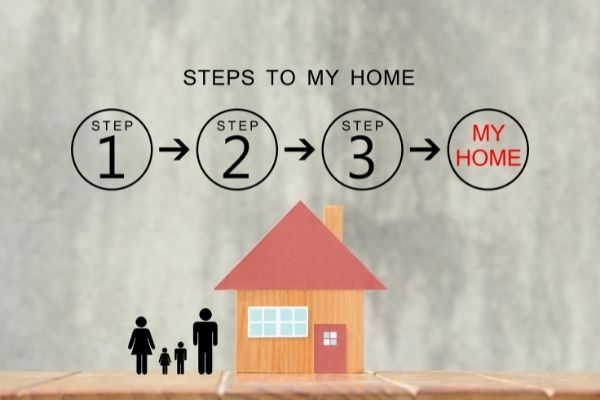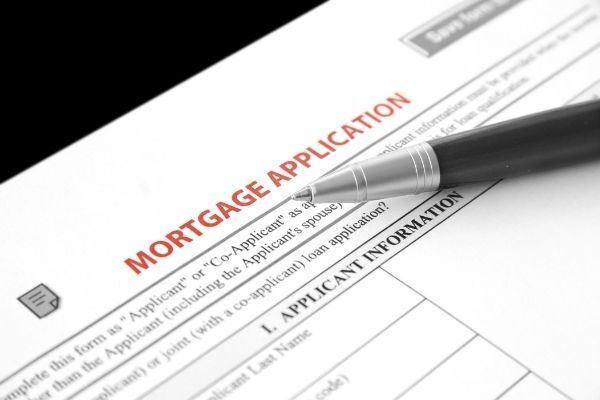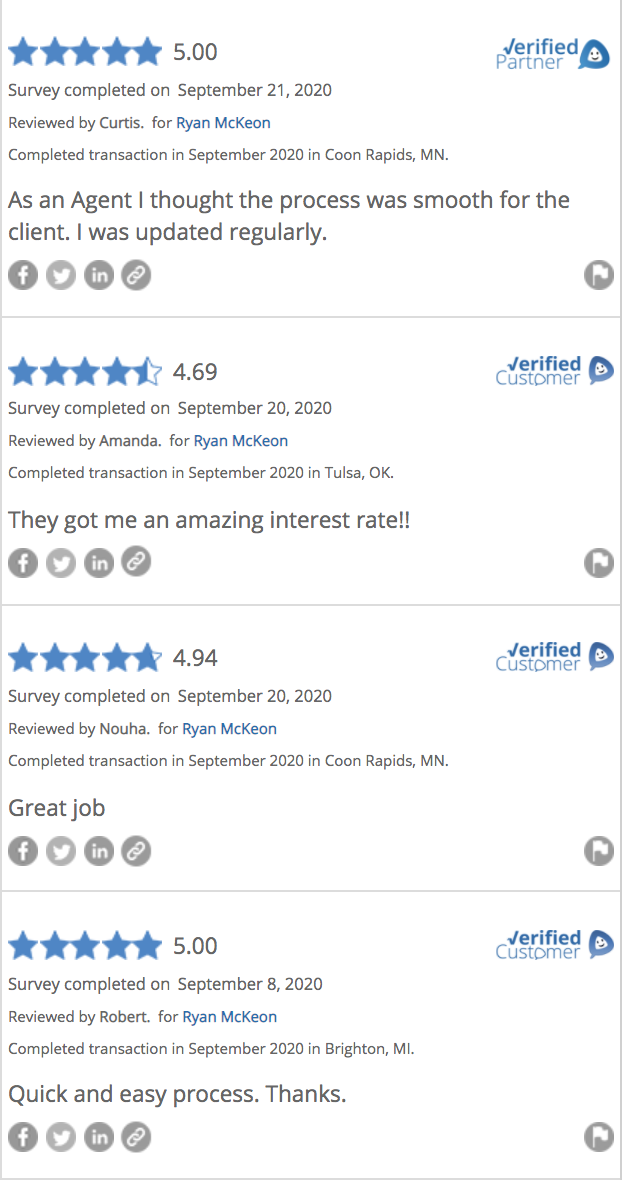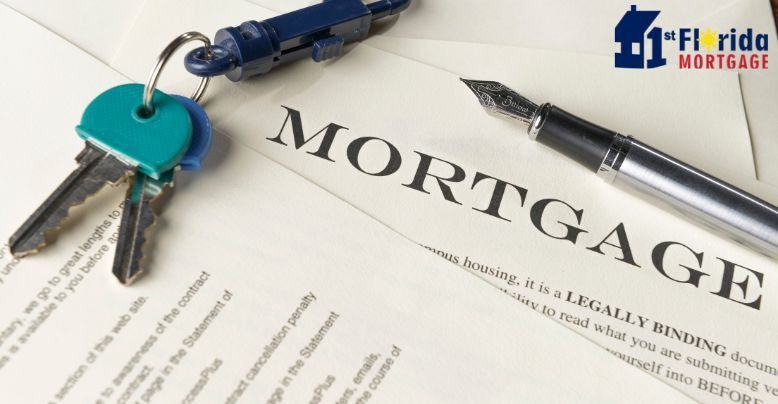Everyone knows that a mortgage is a loan you take out to buy a home. What a lot of people don’t know is how to get one. The best place to start without wasting time is to work with a trusted Florida mortgage company to find a mortgage that fits your needs and budget.
In this article, we will cover everything you need to know about mortgages, including:
- What Florida Mortgage Lenders Need
- Paperwork You Need to Apply for a Mortgage
- Steps to Get a Mortgage in Florida
What do Florida Mortgage Lenders Need?
When you apply for a loan, the lenders look for a few vital factors to determine your ability to pay back the loan. These factors include:
- Credit Score
- Income and Employment History
- Savings and Assets
- Debt-to-Income Ratio
- Property type
Credit Score
Your credit score is a three-digit number that mortgage lenders in Florida use to measure your creditworthiness. This number is based on the information in your credit report, including your payment history, amount of debt, and length of credit history.
The minimum credit score required will vary by lender. For instance, some lenders only approve mortgage loans for borrowers with a credit score of 620 or above, while others may need a minimum score of 680 to qualify.
A higher credit score will result in a lower interest rate on your Florida mortgage loans, so if you have a lower score, it is essential to improve it before you apply. You can find out your credit score for free at Credit.com.
Income and Employment History
Your income and employment history are vital to the mortgage process, as lenders use your salary information to ensure you can pay back your loan. Though there is no set income figure, most lenders will only approve loans for borrowers making at least three times the amount of their monthly mortgage payment.
If your job is commission-based or involves multiple incomes, you may have to include documentation proving how stable your income—such as tax returns or paystubs—is to show that you can afford a mortgage.
Lenders also look for income stability issues such as changes in employment status, frequent job changes, salary freezes, lay-offs, part-time jobs, etc.
Savings and Assets
Your savings and assets will also be considered, as lenders need to inspect your financial stability. This assures them that you will have enough money to cover your down payment, closing costs, and any other debts related to purchasing your home.
Ideally, you should have at least 20% saved up for a down payment, but some lenders may accept as little as 5%.
In addition, you will need to provide documentation for all of your savings and assets, which include any kind of account, retirement plan, stocks, bonds, certificates of deposit, etc., that can be used to recover from.
Debt-to-Income Ratio
Before a lender in Florida gives you a mortgage, they need to make sure that your income will be enough to cover the monthly cost of the home and how much it will cost to pay off your loans or debts.
For instance, if you have an average salary and multiple outstanding debts such as credit cards, student loans, car payments, etc., then your loan may be denied.
To determine what you can afford, lenders use your debt-to-income ratio, the percentage of your monthly income spent on debts, and housing costs. The ideal debt-to-income ratio is 36% or less for a borrower to qualify for a mortgage loan.
Property Type
The type of property you are buying will also be a factor in whether or not you qualify for a mortgage.
For example, a lender may be more likely to approve a loan for a single-family home because they are considered a low-risk investment. In contrast, a condo or co-op may be seen as a higher risk because they are often more expensive and have a lower resale rate.
Additionally, suppose you are looking to purchase a multi-unit property such as a duplex or triplex. In that case, you will need to have a much higher down payment to account for the extra cost of buying an additional unit.
Lastly, if you are looking to purchase a property that is still being built, then it will need to be inspected by a third party before the bank will approve your loan.
The interest rate may vary depending on the type of property you want to buy. Each lender has different requirements, so it’s essential to shop around and compare interest rates and terms.
Paperwork You Need to Apply for a Mortgage
To apply for Florida home loans, you will need to provide the lender with essential documents.
Some of the most common include:
Proof of Income
To show that you make enough money to afford a mortgage payment, lenders will require:
- Your most recent pay stubs
- Two years of W2 forms
- Tax returns from the past two years
Proof of Assets
Lenders will also need documentation for any assets you may have, including:
- Bank statements from the past three months
- Proof of investment or stock ownership
- Retirement plans such as 401K, IRA, etc.
- Proof of insurance (life and disability)
- Copy of car registration
If you are self-employed, then the lender will also need:
- Three years worth of returns and a current year return if available
- A copy of your business license and certificate of good standing
- A projected profit and loss statement and balance sheet for the current year.
Proof of Identification
You will need to provide your lender with a valid form of identification, such as a driver’s license or passport.
Proof of Residency
In addition to this, your lender will need to see proof that you currently live in the state where you are applying for a loan. Although there may be some exceptions, lenders typically require two proofs such as:
- A current utility bill
- A bank statement showing a recent deposit of a paycheck etc.
Steps to get a mortgage in Florida without any hassles
Once you are ready with the above-mentioned documents, it is time to look for a loan that works best for your needs and budget. Here are a few easy steps you need to follow to get your required mortgage from the most trusted Florida lenders:
Mortgage Pre Approval
If you need a mortgage and don’t know where to start, getting pre-approved is the first step.
Getting pre-approved will not only give you a sense of the price range for homes in your area but will also allow you to determine how much money you can borrow from a lender.
To get pre-approval, you need to answer mortgage-related questions to your lenders, such as your income, assets, debts, and employment history. You can then give them permission to check your credit report to ensure you are eligible for a loan. Once the lender is done with checking your payment history for both your past and present credits, they will give you a mortgage pre-approval letter that shows the maximum amount of money you can borrow from them.
When getting pre-approved, make sure the figure you receive is accurate and reflects your ability to get a mortgage. If you aren’t comfortable with what they say or don’t feel confident in getting pre-approval, look elsewhere for lenders who can provide you with the best mortgage loan.
Once you get pre-approved, it will be much easier to shop for homes because you will already know how much you can afford, and this information enables sellers to make more informed decisions about your home purchase.
Pre-Approval can also help speed up the loan process and avoid unnecessary delays later.
Go Home Shopping
Now that you have pre-approval in hand, it’s time to go shopping for your dream home. Remember that just because you are pre-approved doesn’t mean you should buy the first home you see. You may want to look around and compare interest rates, terms, and prices before making an offer.
The Application
After you have found the home you want to buy, the next step is to apply for a mortgage with your chosen Florida mortgage company. Be sure to have all your required documents ready and make copies of everything before submitting it so that there are no delays in getting your loan approved.
The application will require a lot of personal information, including:
- Your name, address, and social security number
- Your past two years employment history
- Information about your spouse if you are married
In addition to this, it will also ask for additional information such as your occupation, employer’s name, and phone number, as well as your expected salary. Be truthful while filling out your application, and remember to include all relevant information. A minor omission can significantly impact the loan approval process, so it is best, to be honest.
Once you have completed your application, submit it to the lender along with all necessary documentation. Wait for a response from them or check in online to see if any questions need to be answered.
The Loan Process
After submitting your application, your mortgage lender in Florida will start the process of underwriting your mortgage. This is a process where they will verify all the information you have provided in the application and compare it with public records. The lender will also need to verify your property details, including its location and value. This may also involve ordering an appraisal of the property.
If all the information is in order and there are no discrepancies, your lender will finish the underwriting and provide you with a closing disclosure. This includes the details of your mortgage, down payments, mortgage interest rates, and other important information about your loan. It will also include a mortgage settlement statement or closing statement, which shows how much money you have to pay towards the down payment and other fees.
The Closing Process
After going through all of these steps, the next step is to close on your loan. This usually happens at a title company or escrow company, and you will need to sign a wide variety of paperwork. The closing agent will go through all the documents with you and answer any questions you may have.
Be sure to read all the documents carefully and ask questions if something is unclear. It’s also essential to have someone with you at the closing who can help you with the process and keep you informed. If something isn’t clear or if there’s a problem, don’t sign anything until it is resolved.
Conclusion
A big part of getting a mortgage loan is to be prepared and know what you are going to need to get it approved. It also helps if an experienced professional guides you through this process, such as a broker or a mortgage specialist. Our Florida Mortgage lenders will provide you with all the necessary information and help you find a loan that fits your needs. If you are ready to shop for a home loan in Florida, get in touch with 1st Florida Mortgage to discuss your mortgage options! We are a full-service lender with years of experience in the industry and can provide you with all the information you need to make an informed decision. So give us a call today and let us help you buy your dream home!











